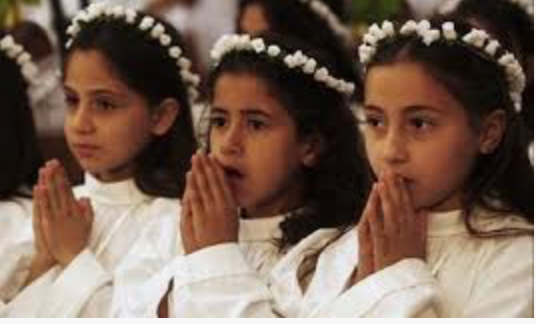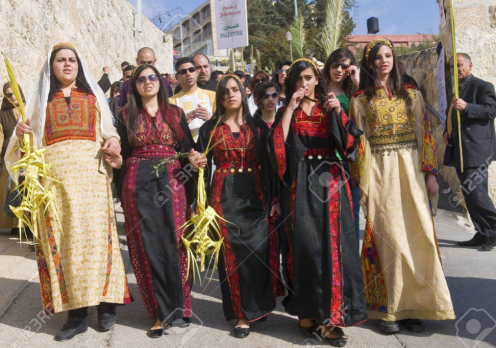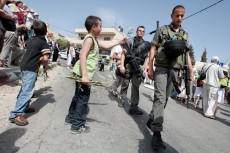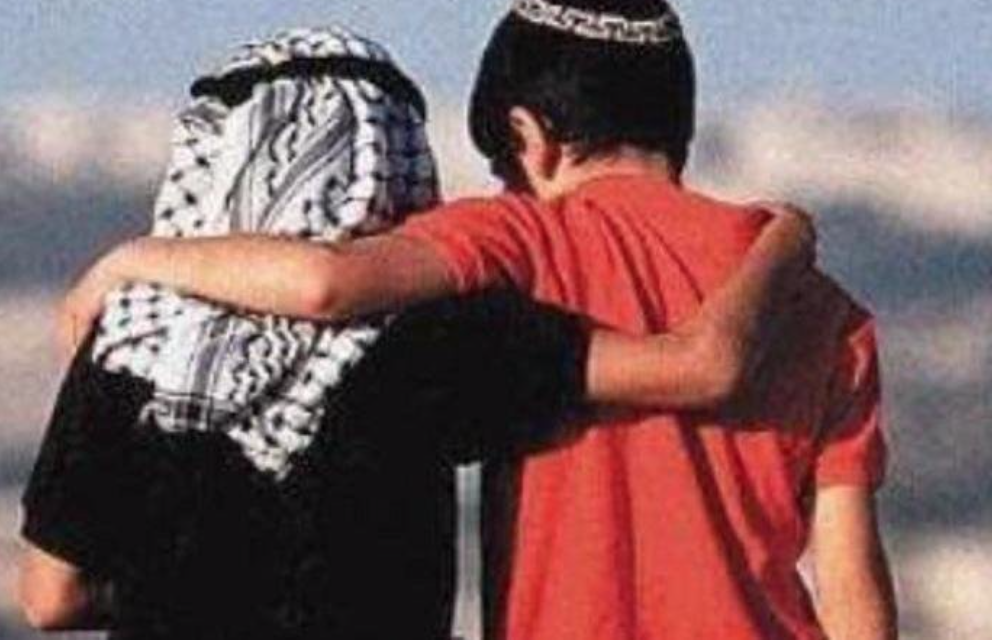As the wreckage and death toll mounts as a result of Israel’s provocative attack on Al Aqsa worshipers during the holy month of Ramadan, American Palestinian Women’s Association implores President Biden to send the USNS naval hospital ship to the shores of Gaza. To heal and mend the injured children, and provide water, food, and tents to shelter the 50,000 families made homeless by Israel’s American made planes and bombs.
mai abdul rahman May 2021

Last April, American Palestinian Women sent a letter to President Joe Biden. We congratulated and welcomed him as the leader of our nation and urged him to send the USNS naval hospital ship to Gaza- letter attached below. There is no time more urgent than now to send the USNS Naval ship to treat the injured and mend the broken limbs of young Palestinian children who suffer the consequences of irresponsible US policies.
Children do not develop in isolation. They are shaped by the social and political worlds in which they live. The US bears much of the blame for creating the political and situational conditions that have allowed Israel to impose the ecological and military constructs that continue to shape young Palestinian’s cruel environment. In other words, funding Israel’s wars and its wholesale brutal occupation policies and Gaza siege dictates US intervention to reduce the physical and psychological scars that impact the long term development of young Palestinians.
Long before Israel’s provocative attacks on Alaqsa mosque worshipers, and its chronic policy of vacating and displacing Palestinian families from their homes to hand over to Jewish settlers, Palestinian children have suffered unbearable trauma. Almost all under age Palestinian children (88%) have personally witnessed the demolition of homes, the wounding and killing of family members, neighbors and loved ones. Palestinian medics and therapists are ill equipped to deal with overwhelming number of young Palestinian victims in need of medical attention and therapy. Without the proper intervention, the impact of these scaring experiences will last an entire lifetime.
Armed and well equipped with US made weapons, Israel’s occupation soldiers determine Palestinian children’s physical safety and the safety of their families. Israel’s military and police control their access to school and ability to walk safely back to their homes and neighborhoods. Their daily encounters with Israel’s occupation soldiers and its angry settlers reinforce time and again that at any given day they may lose their life, father, mother or siblings. These cruel facts are multiplied ten folds for those Palestinian children living under Israel’s suffocating siege in Gaza. Israel also controls their food intake, clean water consumption, and ability to safely walk to school or playground. They live in perpetual anxiety afraid to face Israel’s devastating US made bombs and its occasional happy trigger snipers who on a whim commit them limbless, orphaned, or dead.
Long before Ramadan 2021, and the Covid19 pandemic that exasperated the fragile Palestinian health care system, research had established that 68% of Palestinian children exhibit symptoms of Post Traumatic Stress Syndrome, and more than two-thirds of children under 5 suffer from various vitamin deficiencies. All of which produce long-term developmental issues that damage their physical and mental wellbeing.
American taxpayers (you and, I included) have generously funded Israel’s wars and human right abuses. Our monies fund the weapons that successive US administrations have supplied Israel without one iota of accountability. We are collectively responsible for the senseless suffering of thousands of young Palestinian children.
As an active party to this decades long devastating carnage, the US must take responsibility for healing and mending the innocent young Palestinian children who suffer our irresponsible policies and negligent actions. Sending the USNS naval hospital ship to Gaza on a humanitarian and medical relief mission could provide the surviving young Palestinian children a little help to overcome the dire conditions we helped create. It will also offer principled Americans a small gesture of much-needed relief from the ache of feeling directly responsible for creating this mess.
[Emblem of American Palestinian Women’s Association]
American Palestinian Women’s Association (APWA)
Bridging cultures for a brighter future
APWA is a non-profit organization (EIN 52-2439307)under the IRS code 501(c)(3)
President Joe Biden
The White House
1600 Pennsylvania Avenue
Washington D.C., 20500
April 3, 2021
Dear President Biden,
The American-Palestinian Women’s Association would like to congratulate you and welcome you as the leader of this nation. We write to you today as concerned mothers, sisters, representing a large community of Palestinian-Americans, about the deplorable living conditions of the Palestinian children, youth, and elderly residing in Gaza.
At this time, and as the research suggests, 68% of Palestinian children display symptoms of Post Traumatic Stress Syndrome. In addition, nearly two-thirds of children under 5 suffer from various vitamin deficiencies and suffer long-term developmental issues that prolong the harm to their physical and mental wellbeing. The COVID19 pandemic has only exacerbated the fragile healthcare system of Gaza and deserves our attention for its dire impact on the most vulnerable children of Gaza.
We urge you to send the USNS Mercy to Gaza for much-needed relief to the sorely inadequate local healthcare facilities. It can improve the quality of life for thousands of Gazans and show the children of Gaza that the US has not forgotten them. We believe that your administration can take action to address this humanitarian calamity and we ask that you assign someone in your cabinet to advocate throughout the process of the ship deployment.
We thank you for your leadership and look forward to your response by email at mai.abdulrahman@gmail.com or by phone at (…..
Sincerely,
Dr. Mai Abdul Rahman
President, Board Chair
The American-Palestinian Women’s Association









